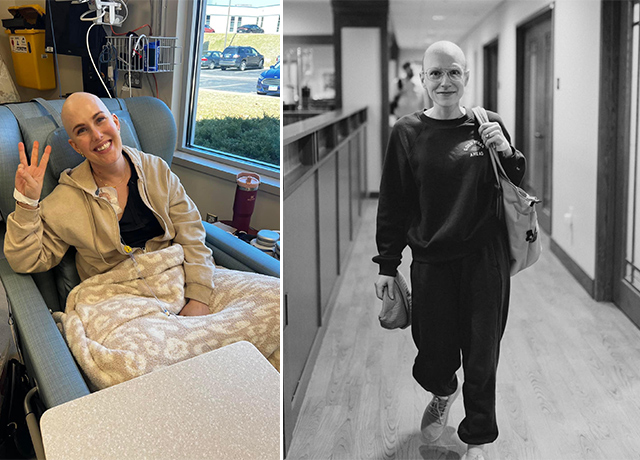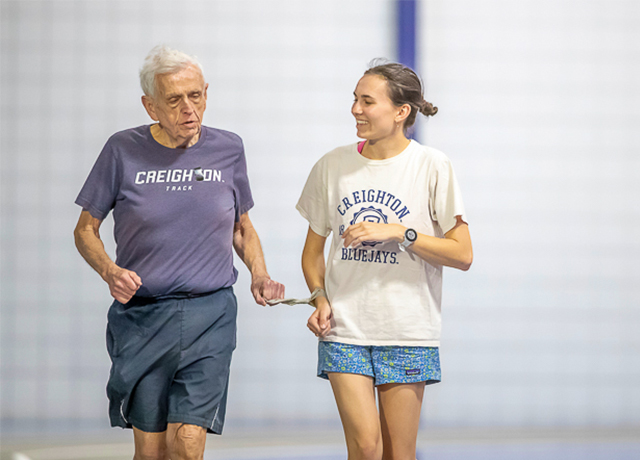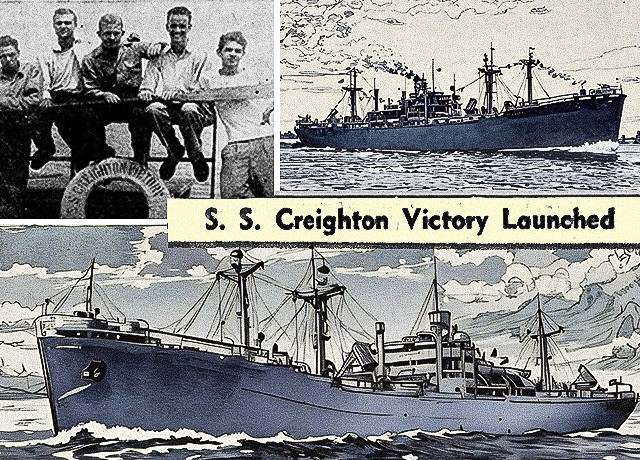Featured Testimonial About Creighton University
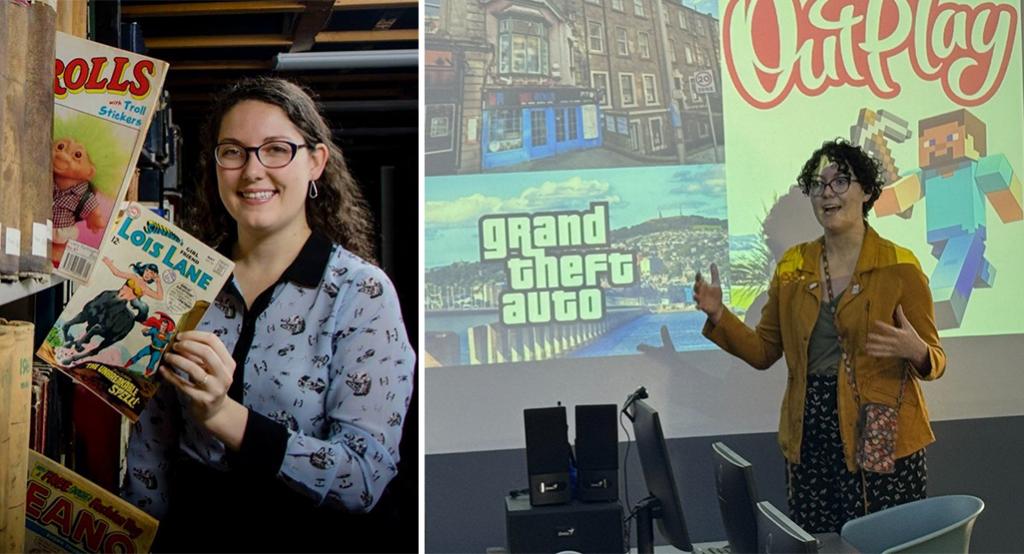
If you look back at everything after the fact, it might look like I had it all figured out. I did not. But I met some amazing people at Creighton who helped me figure it out along the way.

In our Fast Forward series, we profile alumni doing unique, interesting and meaningful work in their fields, inviting each to connect the support they received at Creighton, however long past, to the person they are today. See more Fast Forward features here.
* * *
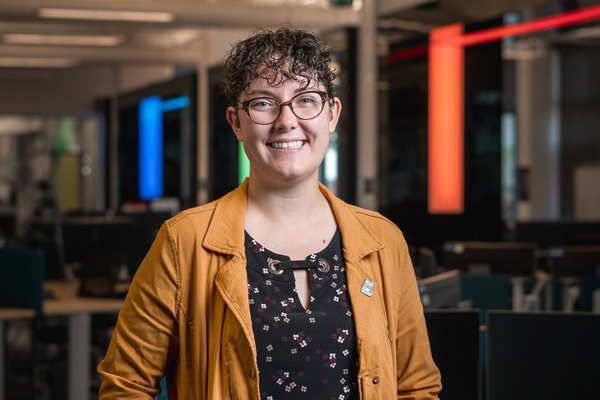
By Micah Mertes
At Creighton, all paths are possible. Including, apparently, this path:
Discovering a love for comics --> moving to Scotland --> meeting your future spouse --> teaching comics and video games at a university --> raising chickens in your Scottish home.
That path belongs to Hailey Austin, BA’16, who is, as far as we know, the sole member of Creighton’s Bennett, Colorado --> Omaha, Nebraska --> Dundee, Scotland pipeline.
“If you look back at everything after the fact, it might look like I had it all figured out,” Austin said. “I did not. But I met some amazing people at Creighton who helped me figure it out along the way.”
It started when she was a Creighton student who couldn’t decide on her major. She tried journalism. It wasn’t for her. She did two weeks of pre-law. Nope.
Through the process of trial and error, no matter what direction she veered, she kept circling back to English and history.
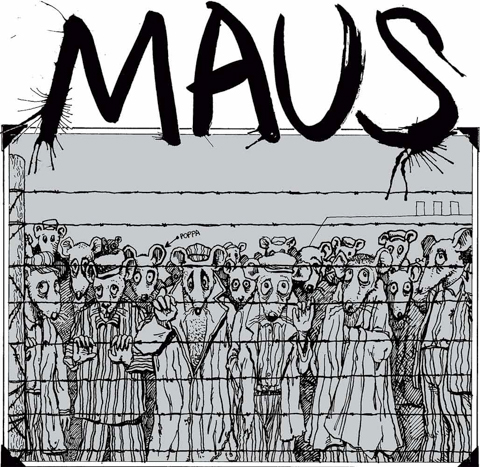
She took a class of then-Creighton English professor Lydia Cooper, PhD. The class surveyed English and American literature from 1914 to the present, and one of the works they read was Maus, Art Spiegelman’s groundbreaking graphic novel in which he recounts his father’s experiences as a Polish Jew and Holocaust survivor. In the book, Jews are depicted as mice and other Germans and Poles as cats and pigs. In 1992, Maus became the first graphic novel to win the Pulitzer Prize.
“I was so moved reading it,” Austin said. “I was like, this is it. Comics. This is what I want to do with my life. I want to be an English teacher who teaches comics.”
Dr. Cooper and then-English professor Matthew Reznicek, PhD, let Austin write her final papers on Maus. History professor Simon Appleford, PhD, allowed her to write about the female Thor in his class and approach comics from a historical angle. Britta McEwen, PhD, Creighton associate professor of history, helped Austin deepen her knowledge of the form when the two started a comic-book summer book club.
“Hailey was an exciting student,” Dr. McEwen said. “She brought a sense of excitement about the way all of her studies were connected into every classroom. In many ways, Hailey lived out the dream of the liberal arts while she was at Creighton. She created a space of intellectual freedom and experimentation for herself and invited the rest of us to join her.”
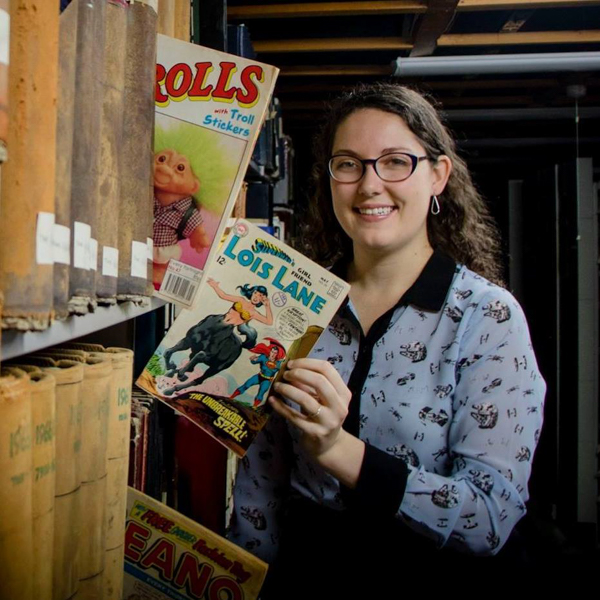
Dr. Cooper encouraged Austin to apply for Creighton summer undergraduate fellowships, and she was awarded one funded by the Klutznick family, which sent her to the U.S. Holocaust and Memorial Museum in Washington, D.C., where she researched Maus.
As she graduated from Creighton in 2016 (with a dual major in English and Spanish and a minor in history), Austin considered her next steps.
“I literally just Googled ‘comics’ and ‘master’s,’ and the first one that popped up was in Scotland,” Austin said. “I was like, ‘Oh … OK.’”
Receiving her student visa just hours before she flew to Scotland, Austin embarked on a master’s in literature in comics and graphic novels at the University of Dundee in the city of the same name on the country’s eastern coast. She was supposed to be there for a year. Seven years later, she still lives there and has no plans to leave.
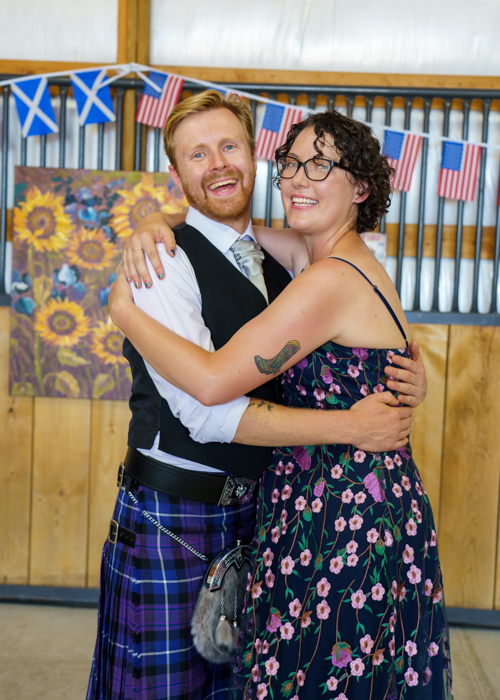
On her third day in Dundee, she met her future husband, Lewis, a native Scot from the nearby town of Blairgowrie in Perthshire. They were married last year, holding both a Scottish celebration and, later, a barn dance back in Austin’s hometown of Bennett, Colorado. The reception’s Scottish guests were amazed by this American custom, as were the American guests who attended the Scottish ceilidh (pronounced kay-lee, a traditional dance).
After completing her master’s degree, Austin stayed on at the University of Dundee to complete a PhD in English. But where to go from there?
“I was applying for jobs all over the world,” she said. “The United States, Ireland, Wales, Canada. But it ended up that there was the perfect job right across the street, at Dundee’s other university.”
Austin defended her PhD thesis on a Monday. She started her new job on a Wednesday, joining Abertay University as a research and development fellow in transnational creative industries. Today, she is a lecturer at Abertay’s Faculty of Design, Informatics and Business.
Austin has taught on a wide range of topics: comics/graphic novels, English literature, narrative design, film noir, video games and more.
Despite its small size (about 148,000 people), Dundee is an epicenter for creative innovation. In 2014, the United Nations recognized it as the United Kingdom’s first City of Design for its contributions to medical research, comics and video games.
Dundee’s comics history dates back to 1905, with the founding of DC Thomson & Son Ltd., a media company that put the city on the map. At its peak, DC Thomson produced more than 100 million comics, magazines and newspapers each year.
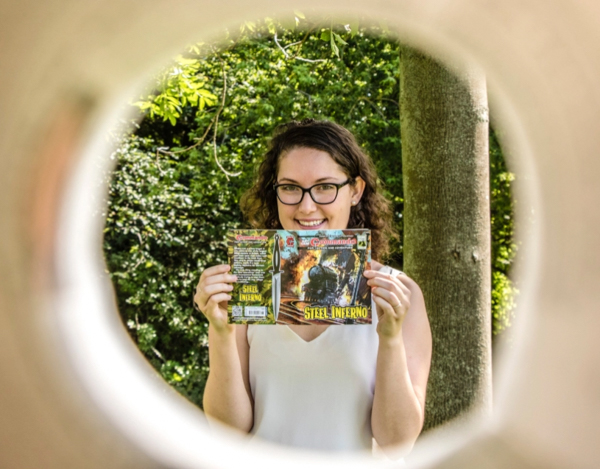
Austin has written a few DC Thomson comics herself — including newspaper strips and nine issues of Commando, the long-running British historical comic exploring incidents from the First and Second World Wars. In fact, Austin was the first American to write for the comic and one of the first women to write for it in more than 30 years. The paychecks from comics writing, Austin said, helped her through the leanest years of academia.
Dundee’s industrial roots are the reason it’s a major player in the international video game market today. In the 1980s, a new home computer model, the ZX Spectrum, set up its base of manufacturing in a Dundee factory owned by the watchmaker Timex. Workers at the factory, mostly women, brought ZX Spectrums home, and their children learned how to program the device. This created a small pocket of tech-savvy teenagers who eventually launched their very own video game industry.

Abertay University started a department for the study and teaching of video games in the computer sciences department, and in 1997, the university became the first in the world to offer a degree in computer games. The hit game Lemmings came out of Abertay. As did the original Grand Theft Auto.
“Dundee is small, but there are 60 game companies because of the university,” Austin said.
Like the city itself, Austin is an outlier. She’s an American in Scotland. She’s a theorist at a polytechnic university. She is also, she noted, a video game teacher who is bad at playing video games. (“But I think that makes me a good teacher because I reflect the wider audience the students will be designing their games for.”)
Austin’s fellow instructors teach students how to make the games. She teaches them to think about what they’re making: the impact on the industry, the players, the medium, etc. She guides students through practical aspects of game creation, including play testing, quality assurance, bug fixing, team building and how to pitch your idea to an investor.
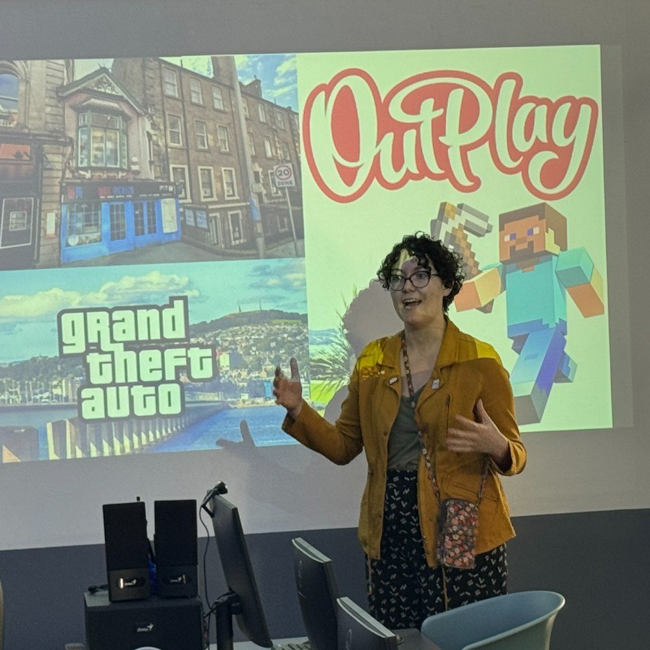
On the comics side, she teaches the fundamentals of design via the medium. She also takes comics to the larger community. She’s worked with a local domestic violence charity to make comics about former victims finding empowerment. She’s guided younger students in making comics about the transition from primary to secondary school. Each year, the comics are printed for the incoming class of secondary students.
Austin also started the nonprofit Comics Youth Scotland, which hosts comics-making workshops for young people around Dundee’s most deprived areas.
In comics and video games, Austin has found the ideal medium to explore the ideas and avenues that fascinate her. It’s the destination of an unlikely path that started at Creighton, a university that was named, mind you, after an Irish-American family whose name originated in a Scottish barony. (Austin noted that there "are loads of streets all over Scotland called 'Crighton Street, and it's not an uncommon last name here.")
“So many people at Creighton understood what I wanted to do and took it seriously,” Austin said. “And they’ve continued to support me even when I’m no longer at Creighton. Even when they’re no longer at Creighton.”
Austin has co-authored a paper with one of her mentors, a paper that led to the creation of a game. She visits her former Creighton professors in the U.S. They visit her in Scotland. They’ve helped her keep her faith amid the struggles along the way. They made her winding journey possible.
“Hailey’s story is a Creighton story,” said Austin’s mentor, Lydia Cooper, who today teaches at Seattle University. “It's about how Creighton supports and nurtures the curiosity and passions of its students, enabling them to go forth, to bring their particular skills and talents to the world and to change it for the better.”
